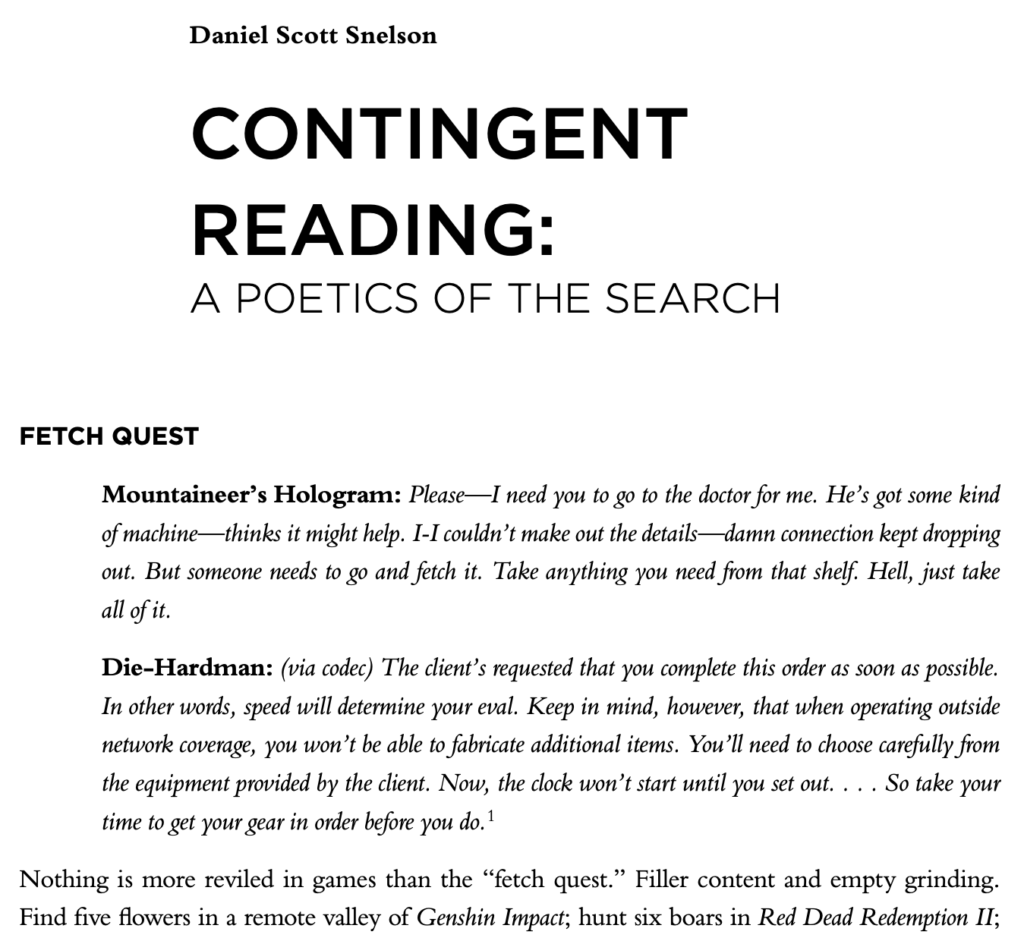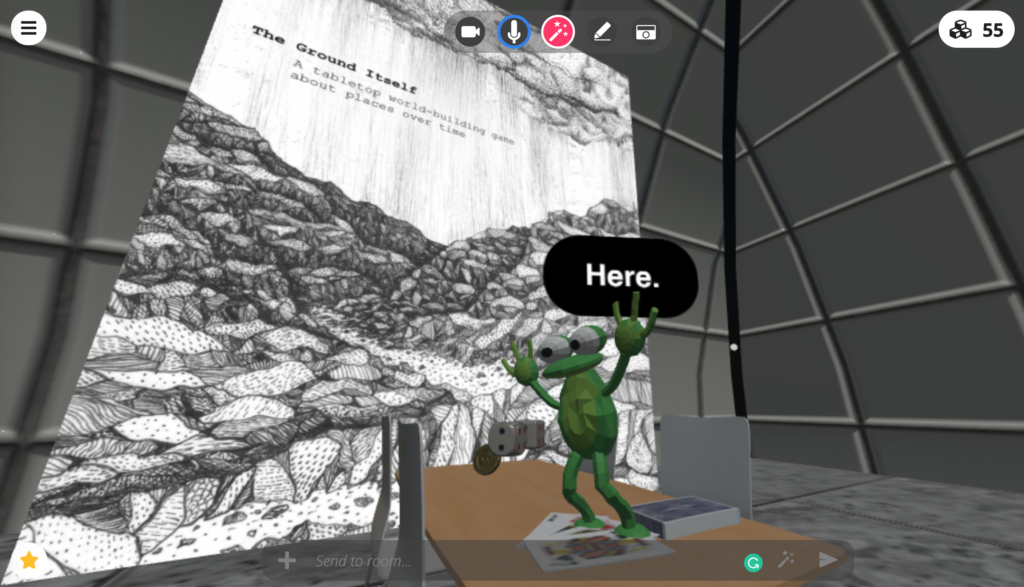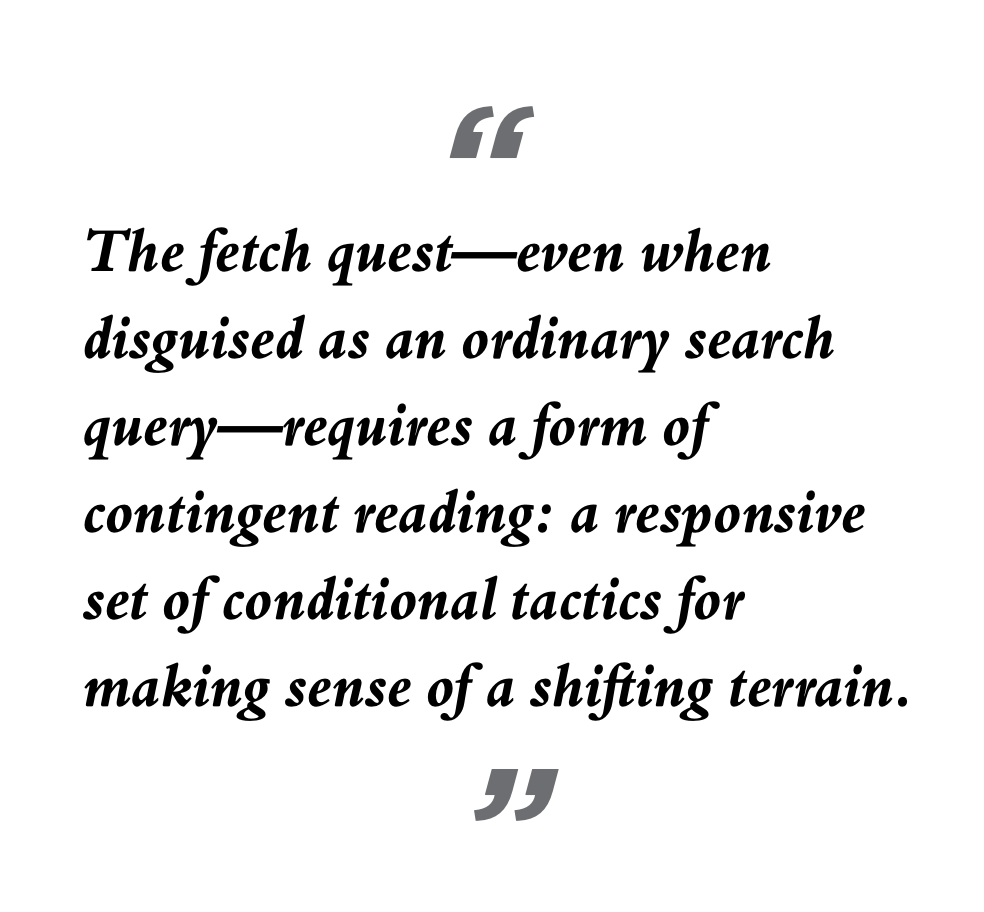What is the prosody of a search string? How might we study it? How do the politics of connection encode its use? Where might the form meet the function of a database query? This paper bridges two seemingly unrelated operations: the practice of worldbuilding and the poetics of searching. By turn, I present the findings of what an AAA video game (Hideo Kojima’s Death Stranding); an indie tabletop roleplaying game (Everest Pipkin’s The Ground Itself); and an open-source XR platform (Mozilla Hubs) might teach us about that most basic activity of networked computation: the algorithmic fetch quest that begins with a human-generated search string. Google searches currently aim for load times under a half-second to maintain user interest. In Kojima’s post-apocalyptic future, a haunted quantum network cuts load time to zero, enabling new inscriptions upon even the ground itself. Today’s social XR platforms like Mozilla Hubs anticipate this fiction wherein shared virtual worlds can be rewritten on demand at the search interface. The user’s desire to connect is counterbalanced by the manifold failures and surprises of both algorithm and database. Making do with what’s left at this juncture, I argue, forges the poetics of the search. Published as part of the “Inscriptive Studies” special issue of ASAP/Journal, edited by Rita Raley and Paul Benzon. Snelson, Daniel Scott. “Contingent Reading: A Poetics of the Search.” ASAP/Journal, vol. 7 no. 2, 2022, p. 385-407. Project MUSE, doi:10.1353/asa.2022.0025. | Write Danny Snelson at gmail for PDF beyond paywall. |





